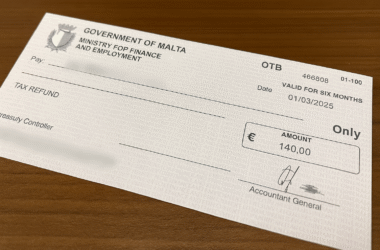Malta’s employment contract framework defines several types of work arrangements, each with its own legal rights, conditions, and obligations. Understanding these distinctions is essential for both employers and employees, particularly in a labour market that increasingly embraces flexible, remote, and seasonal work.
All employment contracts in Malta are regulated by the Employment and Industrial Relations Act (EIRA) and overseen by the Department for Industrial and Employment Relations (DIER). Below is a clear breakdown of each employment category and what it entails.
Indefinite (Permanent) Employment
An indefinite, or permanent, employment contract has no fixed end date and continues until either party terminates it lawfully. It represents Malta’s most common and secure employment type.
- Probation: Standard period of six months, extendable up to one year for higher-level roles (executive, technical, or administrative) earning twice the national minimum wage.
- Notice Periods: Scale with service — from one week (under six months) up to twelve weeks (after ten years).
- Suspension Rule: If the employee takes more than two weeks of justified leave during probation, the clock pauses and resumes once back at work.
- Termination: Must follow proper notice or legal grounds — arbitrary dismissal exposes the employer to claims.
This is Malta’s “default” employment form, offering long-term security for employees and predictability for employers.
Fixed-Term (Definite) Employment
A fixed-term employment contract runs for a specific duration or until a particular project is completed. It must always have a clearly defined start and end date.
- Duration: May not exceed four years in total, renewals included.
- Minimum Term: Usually six months, unless objective reasons justify shorter engagement.
- Probation: Proportional to the contract length — for instance, a 6-month contract = 2-month probation; contracts above 15 months = up to 6 months.
- Early Termination:
- If employer ends early (not for misconduct), they must pay half of the remaining wages.
- If employee resigns early, they owe the same proportion.
- Renewal: When the same tasks continue, no new probation applies.
A fixed-term contract should reflect a genuine temporary need, such as a project or seasonal demand, rather than being used to sidestep indefinite employment obligations.
Part-Time Employment
In Malta, part-time employment contract typically involves around 20 hours of work per week, roughly half the standard full-time schedule of 40 hours. The exact number may vary depending on the role or sector, but part-time employees always work fewer hours than comparable full-time staff while enjoying the same rights and benefits on a pro-rata basis.
- Pro-Rata Rights: Entitled to all employment benefits (leave, sick pay, bonuses, public holidays) proportionally to hours worked.
- Fair Treatment: Cannot receive less favourable pay or conditions than full-time employees performing similar duties.
- Conversion Rule: If average hours over a year match or exceed full-time hours, the employee becomes whole-time by law.
- Written Agreement: Hours, duties, and rate of pay must be clearly outlined in the employment contract.
Part-time employment contract can be either indefinite (permanent) or fixed-term (definite) depending on how it’s agreed.
Reduced-Hours Employment

A reduced-hours arrangment occurs when a full-time employee formally agrees to work fewer hours (less then hrs per week), while maintaining the same employment relationship and entitlements.
- Agreement Required: Both parties must sign a written amendment detailing the new schedule and duration.
- Pro-Rata Benefits: Salary and entitlements (leave, bonuses, etc.) are adjusted according to reduced hours.
- Return to Full-Time: Terms for returning to full hours should be clearly stated.
- Continuity: The employee retains full-time status for social security and employment record purposes.
Reduced-hours employment supports work-life balance while maintaining secure, ongoing employment.
Temporary Employment
Temporary employment is used to meet short-term or project-based needs, often through fixed-term contracts or licensed employment agencies.
- Duration: Always time-limited and tied to a specific operational requirement.
- Agency Rules: As of June 2024, only DIER-licensed agencies under Legal Notice 270 of 2023 can provide temporary workers.
- Equal Treatment: Temporary employees must receive the same basic pay and working conditions as comparable full-time staff.
- Renewals: Repeated renewals may result in the employment being treated as indefinite if not properly justified.
Temporary contracts are a flexible tool for employer, but only when used within DIER’s legal framework.
Telework (Remote Employment)

Telework in Malta is formally defined under the Telework National Standard Order, Legal Notice 312 of 2008, issued in terms of the Employment and Industrial Relations Act (Cap. 452). In practice, telework means that an employee performs their duties regularly and voluntarily from a location other than the employer’s office — typically from home or another approved setting — while staying digitally connected to the workplace.
- Written Agreement: Must clearly state hours of work, equipment use, communication arrangements, and data protection obligations.
- Equal Rights: Remote employees enjoy identical conditions and protections as on-site staff.
- Health & Safety: Employers must ensure a safe working environment, even off-site.
- Data Protection: All monitoring or data handling must comply with GDPR and internal IT policies.
Telework is a working arrangement, not a separate contract type. It can be applied to both indefinite (permanent) and definite (fixed-term) employment contracts. The core terms of employment — such as duration, probation, and notice — remain exactly as defined in the underlying contract.
Casual or “As-Needed” Employment
Casual work covers occasional or irregular tasks without a fixed weekly pattern. It is typically used for short, non-continuous assignments.
- Zero-Hour Restrictions: True zero-hour contracts are prohibited in Malta except for limited, justified exceptions (e.g. emergency or short-notice backup roles).
- Written Terms: Even casual engagements should specify the task, expected duration, and pay.
- Legal Protection: Casual workers are still entitled to basic pay, rest, and safety rights during active work periods.
- Misclassification Risk: Repeated casual work for the same employer may be deemed ongoing employment.
Casual arrangements should prioritise clarity — flexibility should never replace fairness or legal compliance.
Seasonal Employment
Seasonal employment is tied to specific times of year when business activity peaks: particularly in tourism, agriculture, or hospitality.
- Structure: Usually a fixed-term or part-time fixed-term contract aligned with the season’s duration.
- Entitlements: Full statutory rights (leave, bonuses, rest days) on a pro-rata basis.
- Sector Rules: Check the relevant Wage Regulation Order (WRO) for sector-specific rates and conditions.
- Re-Engagement: New contracts must be issued for each season, even for returning workers.
Seasonal contracts are legitimate and beneficial when aligned with genuine business cycles and proper documentation.
Probationary Employment
The probation period allows both employer and employee to assess suitability before confirming ongoing employment.
- Duration: Typically six months, or up to one year for senior positions earning at least twice the minimum wage.
- Notice: One week’s notice applies during probation if employment exceeds one month.
- Suspension: Pauses if the employee takes more than two weeks of justified leave.
- Renewals: Fixed-term contracts renewed for the same job do not restart probation.
Probation safeguards both parties – ensuring fit and fairness before long-term commitment.
Who Do Not Need an Employment Contract in Malta?
Not everyone performing work in Malta is bound by an employment contract under local law. Certain categories operate outside the scope of the Employment and Industrial Relations Act, meaning they do not require a Maltese employment agreement.
These include:
- Foreign Company Contractors: Employees of foreign entities temporarily present in Malta but not locally employed.
- Digital Nomads: Holders of Malta’s Nomad Residence Permit, working remotely for foreign employers or clients abroad. They are not considered employees in Malta and remain under the labour law of their home country.
- Foreign Freelancers: Individuals providing remote or freelance services to overseas clients without a local employer or establishment.
- Self-Employed Traders: Persons registered as self-employed with JobsPlus and the tax authorities, working independently.
These categories may live or work remotely from Malta but are not party to a Maltese employment relationship unless they take up local work.
Malta’s employment system is designed to balance flexibility with protection – ensuring that every lawful work arrangement, from permanent posts to seasonal roles, follows clear and fair rules.
Understanding the distinctions between employment contract types, and knowing who falls outside the system, helps avoid costly compliance mistakes and promotes transparency in hiring.
At Expatax Malta, we guide both employers and workers through every stage of employment, residency, and compliance, book your 30-min free consultation today.
Before you sign or hire — know your contract, know your rights.
Expatax Malta







